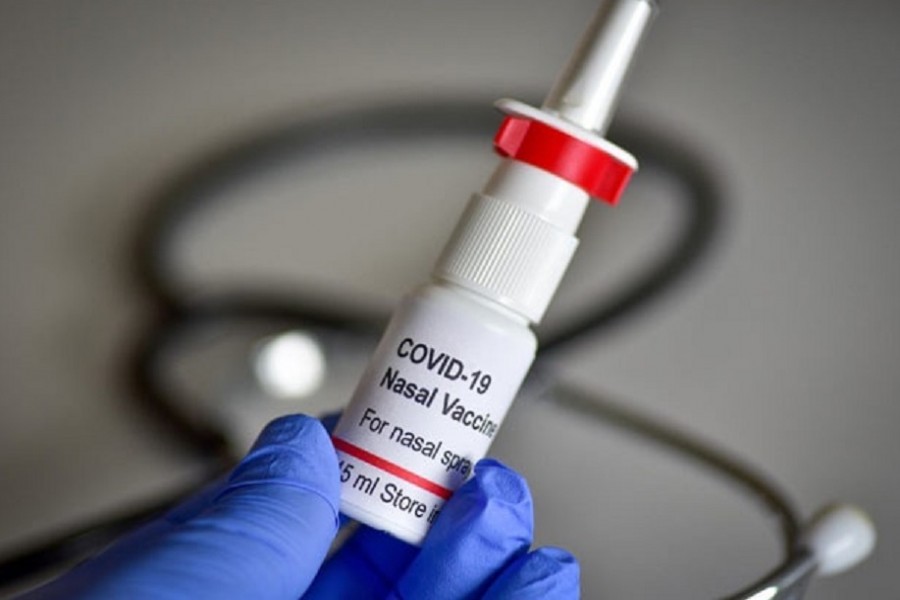Swedish researchers are preparing to apply for permission from Bangladesh authorities to hold clinical trials of a nasal COVID-19 vaccine on humans in the South Asian country, according to a bdnews24.com report.
Developed by Sweden’s medical university Karolinska Institute, the vaccine yielded “good results” in animal trials, according to Bangladeshi experts associated with the ongoing efforts for the trial.
Swedish organisation ISR Immune System Regulation Holding AB has signed a memorandum of understanding with Bangladesh Clinical Trials Ltd, assigning the local company as its contract research organisation.
It has also signed a deal with a pharmaceutical company to produce the vaccine in Bangladesh.
It is preparing to submit the application seeking permission for the trial to Bangladesh Medical Research Council next week.
Dr Ahmedul Kabir, principal of Mugda Medical College, and Dr ABM Abdullah, a former dean of the medicine faculty at Bangabandhu Sheikh Mujib Medical University, will work as principal investigators if the trial is approved. They are working on the protocol of the clinical trial.
Kabir said on Saturday the candidate will be a “game-changer” in the development of vaccines if it succeeds in the clinical trial as it will not need syringes for administration or cold chain and refrigerators for transportation and preservation.
“And no one will need to visit vaccination centres for jabs. It’s totally a green technology.”
The researchers want to trial the vaccine candidate on 180 health workers of Mugda Medical College Hospital.
Kabir said Bangladesh will be prioritised in the distribution of the vaccine if the trials are held in the country. “We will get the permission to produce it. It will be a big opportunity for us.”
ISR signed an MoU with Bangladeshi firm UniMed UniHealth Pharmaceuticals Ltd on Jul 6 for the production of the vaccine.
Currently, the COVID-19 vaccines being used across the world are injected into the blood of the recipients, but concerns have grown over their efficacies to prevent infection with new variants amid a lack of doses while vaccines that target the mucous membranes aren’t new.
There are many oral vaccines that are approved to combat infections such as polio and cholera.
The idea is that they will prime the mucosal tissues of the intestinal tract in much the same way as intranasal vaccines prime the respiratory tract. In many cases, like in the live attenuated oral polio vaccine, these vaccines work better than the shot.
But intranasal vaccines remain rare in the vaccine landscape overall. Many are hoping that the pandemic will change that, according to the National Geographic.
“When you get an infection, you get it in your mucosal surfaces in your nasal cavity and you prime your T cells and your entire immune system in your upper respiratory tract, which means these cells are going to stay there, become resident, and act like a sentinel defence,” says Marcus Buggert, an immunologist and T cell researcher at the Karolinska Institute in Sweden.
“If you vaccinate yourself in the arm, you won't induce that type of T cell response,” she told the National Geographic, according to a Jul 21 article.


